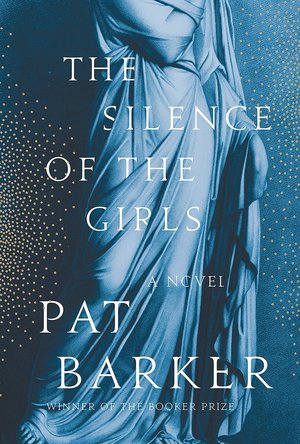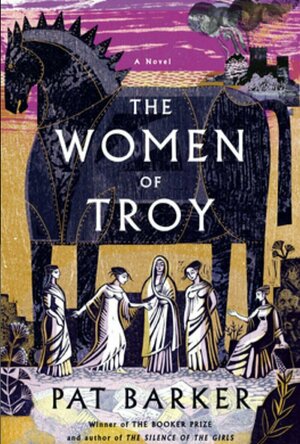Search
Search results
ClareR (5561 KP) rated The Silence of the Girls in Books
Nov 14, 2018
A retelling from a different direction.
This isn't just a straightforward retelling of the Iliad. In fact it's not that at all. This is the story of Briseis (I even googled how to pronounce her name), the queen of one of Troy's neighbouring kingdoms. When her kingdom is sacked by Achilles, she is taken as a slave along with the women and girls who survive, whilst the remaining men and boys are killed. Briseis becomes Achilles concubine - a prize of a battle won.
The violence of war is so graphically described in this novel. Briseis, along with the other slave women, are supposed to care for these mens wounds and fulfil their every (sexual) wish - the very men who had murdered their husbands, fathers and sons.
I've never read a Greek myth from the point of view of the women - they were supposed to be silent. Their stories are forgotten, but Pat Barker brings them to life in this book. We hear their sadness, their worries, their opinions of their masters. I could almost smell the filth, smoke, food and sweat of the Greek camp (in reality, I would imagine that I'd walk in the other direction!).
I've always loved the Greek Myths: I read them as a child and a teenager, and I'm really enjoying the resurgence of these stories at the moment. This novel adds another dimension to these stories, which I really loved. I'd highly recommend this book.
Many thanks to NetGalley and Hamish Hamilton for my copy of this book.
The violence of war is so graphically described in this novel. Briseis, along with the other slave women, are supposed to care for these mens wounds and fulfil their every (sexual) wish - the very men who had murdered their husbands, fathers and sons.
I've never read a Greek myth from the point of view of the women - they were supposed to be silent. Their stories are forgotten, but Pat Barker brings them to life in this book. We hear their sadness, their worries, their opinions of their masters. I could almost smell the filth, smoke, food and sweat of the Greek camp (in reality, I would imagine that I'd walk in the other direction!).
I've always loved the Greek Myths: I read them as a child and a teenager, and I'm really enjoying the resurgence of these stories at the moment. This novel adds another dimension to these stories, which I really loved. I'd highly recommend this book.
Many thanks to NetGalley and Hamish Hamilton for my copy of this book.
ClareR (5561 KP) rated The Women of Troy in Books
Jan 11, 2022
The Women of Troy picks up where The Silence of the Girls finished. Greece has won. The men of Troy are dead, their wealth and women now belong to the Greeks, but due to the fact that the wind is blowing in the wrong direction, the Greeks are going nowhere. Someone must have done something to displease the Gods, but until they come to that conclusion, there’s a lot of eating, drinking, sports competitions and rape. The women, as is usual in any conflict, get the shitty end of the stick. They may not have been killed, but they face a lifetime of slavery and rape.
Briseis is lucky, in that she is now married to Alcimus and is now a respectable, protected woman. But she now feels as though she belongs to neither side. She knows how the female slaves feel: she was one of them once. But they don’t see her as one of them anymore, and she isn’t wholly Greek either. She does manage to see the main female characters from Troy, though. Cassandra makes an appearance - she is still telling everyone what will happen, and on one is believing her. Hecuba is being kept in comfort by Odysseus, but she has seen all but one of her sons killed, and her husband is lying unburied on the beach - she wants to see him sent off to the afterlife before she dies.
We even see Helen and how she’s getting on. Her husband has taken her back, but no one else can see why she hasn’t been killed. After all, she’s to blame for the whole situation, isn’t she?!
Amina is Briseis’ own slave, given to her by Alcimus. It’s clear that she doesn’t like Briseis - after all, Briseis hasn’t tried to convince Agamemnon to have proper funeral rites for Priam. I liked Amina. She stands by her convictions, no matter the consequences (and there are consequences).
In fact, they’re all strong women, trying their best in very difficult circumstances. I always enjoy Greek mythology re-telling, and this book really does it for me. I’d love to see if Pat Barker writes about the times after the Greeks return to their homes. What happens to Cassandra? Helen? And Briseis? Yes, I know I can look it up in any Greek mythology book, but Pat Barkers storytelling is so emotive and really compelling. I’ll be keeping my fingers crossed!
Briseis is lucky, in that she is now married to Alcimus and is now a respectable, protected woman. But she now feels as though she belongs to neither side. She knows how the female slaves feel: she was one of them once. But they don’t see her as one of them anymore, and she isn’t wholly Greek either. She does manage to see the main female characters from Troy, though. Cassandra makes an appearance - she is still telling everyone what will happen, and on one is believing her. Hecuba is being kept in comfort by Odysseus, but she has seen all but one of her sons killed, and her husband is lying unburied on the beach - she wants to see him sent off to the afterlife before she dies.
We even see Helen and how she’s getting on. Her husband has taken her back, but no one else can see why she hasn’t been killed. After all, she’s to blame for the whole situation, isn’t she?!
Amina is Briseis’ own slave, given to her by Alcimus. It’s clear that she doesn’t like Briseis - after all, Briseis hasn’t tried to convince Agamemnon to have proper funeral rites for Priam. I liked Amina. She stands by her convictions, no matter the consequences (and there are consequences).
In fact, they’re all strong women, trying their best in very difficult circumstances. I always enjoy Greek mythology re-telling, and this book really does it for me. I’d love to see if Pat Barker writes about the times after the Greeks return to their homes. What happens to Cassandra? Helen? And Briseis? Yes, I know I can look it up in any Greek mythology book, but Pat Barkers storytelling is so emotive and really compelling. I’ll be keeping my fingers crossed!

